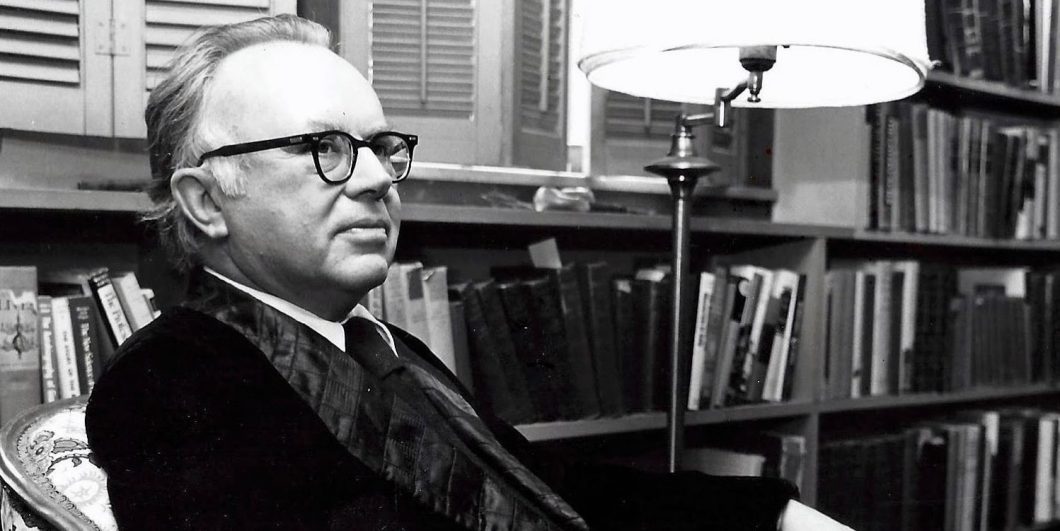Looking beyond electoral advantage and narrow policy questions suggests that people make progress when they face the future while looking to the past.
Not Right-Wing Marxists
Law and Liberty and one day later National Review brought out provocative reviews of the Paleoconservative Anthology, a work that I edited which came out in February. Although both reviews were instructive, they were not entirely accurate in presenting the anthology’s contents. Michael Lucchese at Law and Liberty and his seconding voice at National Review, Bobby Miller, seem to have reduced all paleoconservative ideas and policies to the populist views of Sam Francis. If memory serves, only one of the thirteen essays that appear in the anthology addresses Sam Francis’s work in detail, a study by Pedro Gonzalez dealing mostly with European and American influences on Francis’s account of circulating elites. How Lucchese moved from that scholarly essay into an attack on all paleoconservatives as “right-wing Marxists” defies my understanding.
Lucchese and Miller both insist that paleoconservatism represents a grave departure from a conservative tradition going back to Bill Buckley and perhaps best personified by Russell Kirk. But that tradition always existed in the plural as “traditions,” and many of the most famous conservatives of the second half of the twentieth century identified in varying degrees with the paleoconservatives, who reacted against the neoconservative ascendancy in the fractured conservative movement of the 1980s. Robert Nisbet’s review of my book The Search for Historical Meaning, which appeared in National Review in July 1986, Russell Kirk’s caustic denunciation of neoconservative influence on the conservative movement delivered at the Heritage Foundation in 1988, and weekly meetings of anti-neoconservative dignitaries held in various venues in the District in 1986–1987, all suggest that paleoconservatives were once hardly marginal to American conservatism.
Kirk, who Lucchese and Miller both exalt as a paradigmatic conservative thinker, was the Michigan manager of Pat Buchanan’s presidential campaign in 1992 and a co-organizer of that enterprise the preceding year. He, Sam Francis, Murray Rothbard, and I were all at the meeting at Buchanan’s home at which the foundations were laid for his supposedly radical rightist presidential run. By then a memorable meeting had already taken place at the New York Union Club, on January 22, 1990, under the direction of Buckley, Norman Podhoretz, and Midge Decter. The purpose of that gathering, as explained by the late Paul Weyrich of the Free Congress Foundation, was to marginalize “certain people who were not invited because they made a career out of attacking people who were there.” These eliminationist efforts were ultimately successful, and the losing side was canceled for having rattled neocon journalists and Republican donors once too often.
A central charge in Lucchese’s brief, which Miller repeats in National Review, is that paleoconservatives are all about class war. Paleos supposedly yearn to replace the Reaganite tripod of the free market, anti-Communism, and conservative values with a new tripod, “economic protectionism, immigration restrictionism, and isolationism.” We might ask, however, whether the Reaganite tripod which Lucchese and Miller cherish is still relevant. “Conservative values,” the last time I checked, meant blessing gay marriage as a treasured family institution. We are also supposed to reject males competing in female sports contests, according to Tammy Bruce and others on Fox News, as an “insult to the transgendered community.” What exactly are the “permanent things” that conservatives are now allowed to defend without becoming right-wing deviationists from their leftward drifting movement? Social conservatism seems to be entirely in freefall.
The conservative movement since the 1950s is a far more complex phenomenon than the picture offered by our reviewers; and reducing it to a Reaganite “three-legged stool” grossly oversimplifies its tortured, disjointed history.
As for the charge that we are stirring up class war, allow me to quote the conservative star Victor Davis Hanson, who in his most recent column defined as our “metric of oppression” neither race nor gender but class. I would also recommend Heather MacDonald’s newly published When Race Trumps Merit, which graphically documents how racial strife in the US reveals an escalating and profoundly divisive class war. Wealthy whites are actively inciting poor blacks against lower-class whites, whom liberal elites view as human trash. The paleoconservative flagship Chronicles is not alone in noticing this obvious fact.
Throughout the diatribes of Lucchese and Miller, we are told that paleoconservatives are really “right-wing Marxists.” According to Lucchese, our “ideology of despair” “rejects the conservatism of Buckley or Kirk in favor of class warfare, racial grievances, and power politics.” Since Lucchese accused us elsewhere of “isolationism,” I’m not sure how we can be for “power politics” and staying out of troubled international waters both at the same time. As far as I can tell, paleos are not interested in exercising power very widely; they just want to defend traditional communities against the Deep and Surveillance States. Most paleos are instinctive localists and would be delighted to see our centralized administrative behemoth and its state-level counterparts be replaced by tolerable federalism.
That said, the charge of Marxism that our critics are leveling against us may contain a kernel of truth, but one that unfortunately comes encased in empty rhetoric. The European New Right has been critically influenced by the Italian Marxist Antonio Gramsci, particularly by his theory of ideological hegemony. But since Gramsci’s theory about class turns classical Marxism into a sociology of culture, it is questionable whether it is faithful to Marxist theory.
Like Sam Francis and much of the European Right, I accept Gramsci’s view that the ruling class shapes the consciousness of those it dominates. To change class consciousness, it is therefore necessary for those who are resistant to find some way of breaking through this egemonizzazione ideologica, to use Gramsci’s phrase. Sam Francis’s attempt to create a Middle American consciousness that could be adapted to fighting culturally leftist elites represents a Gramscian solution. Lucchese and Miller are free to reject that proposed solution. They may also grumble over the fact that Francis’s Gramscianism has fertilized a populist Right that they clearly despise. What is less obvious is that paleos who agree with Francis should be called Marxists for thinking differently from their mainstream conservative critics.
While our “right-wing Marxists” may not speak for the entire post-war conservative movement since its inception, neither do our anthology’s critics. The conservative movement since the 1950s is a far more complex phenomenon than the picture offered by our reviewers; and reducing it to a Reaganite “three-legged stool” grossly oversimplifies its tortured, disjointed history.


